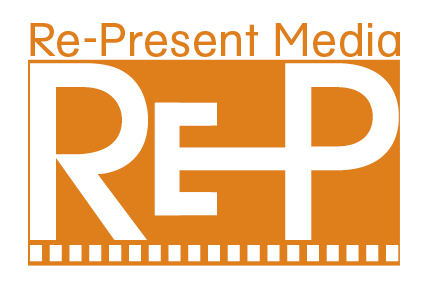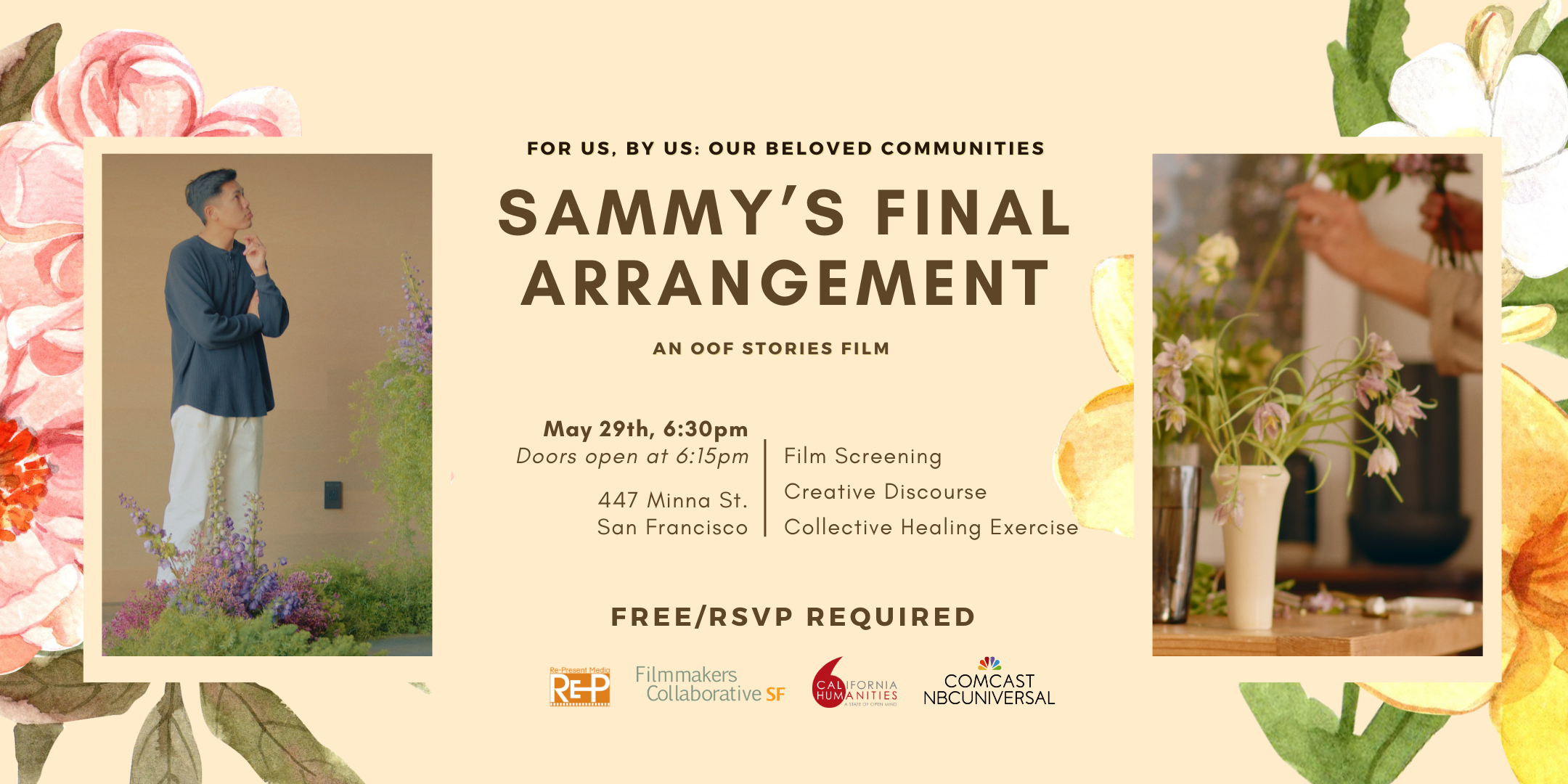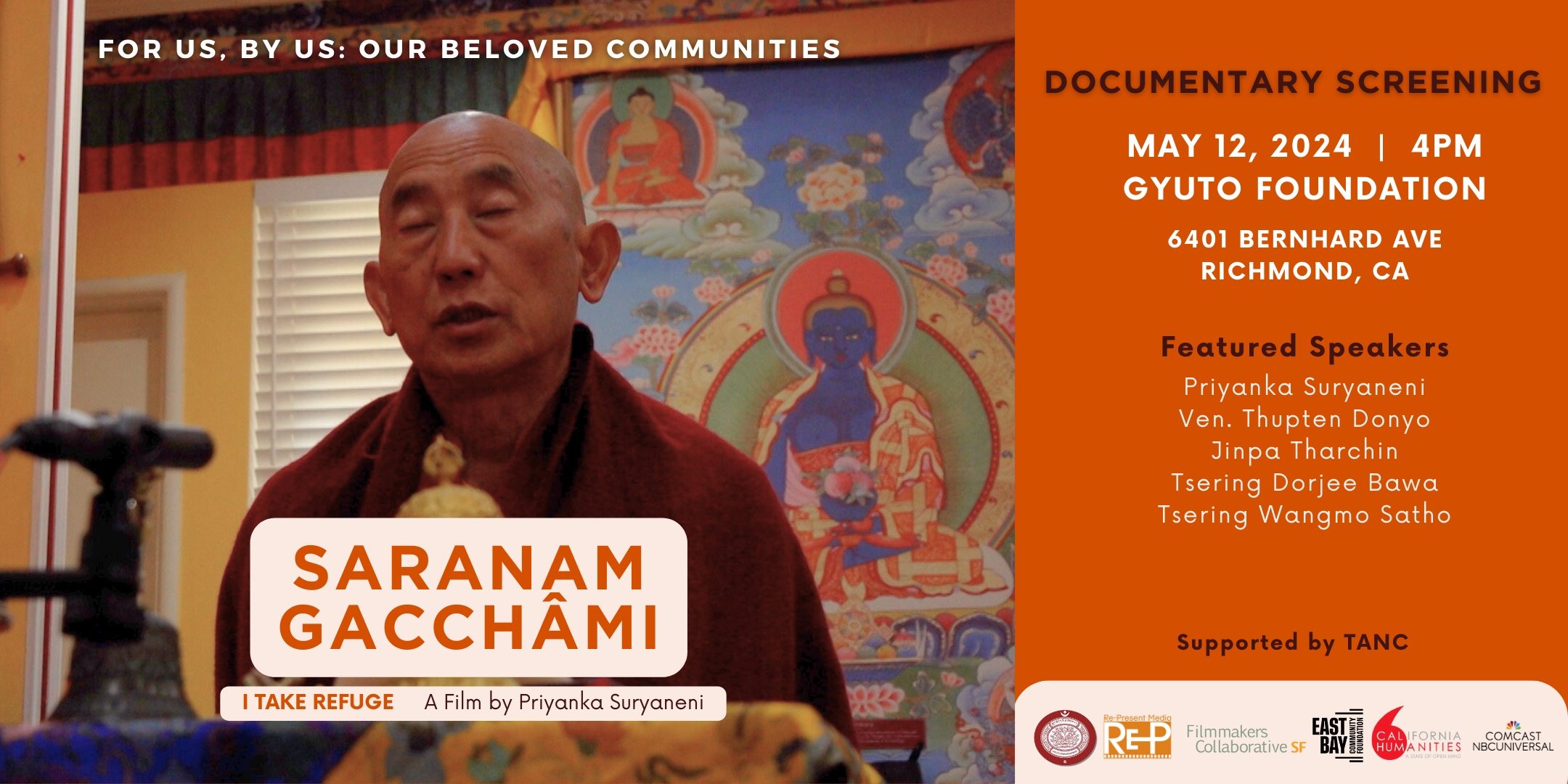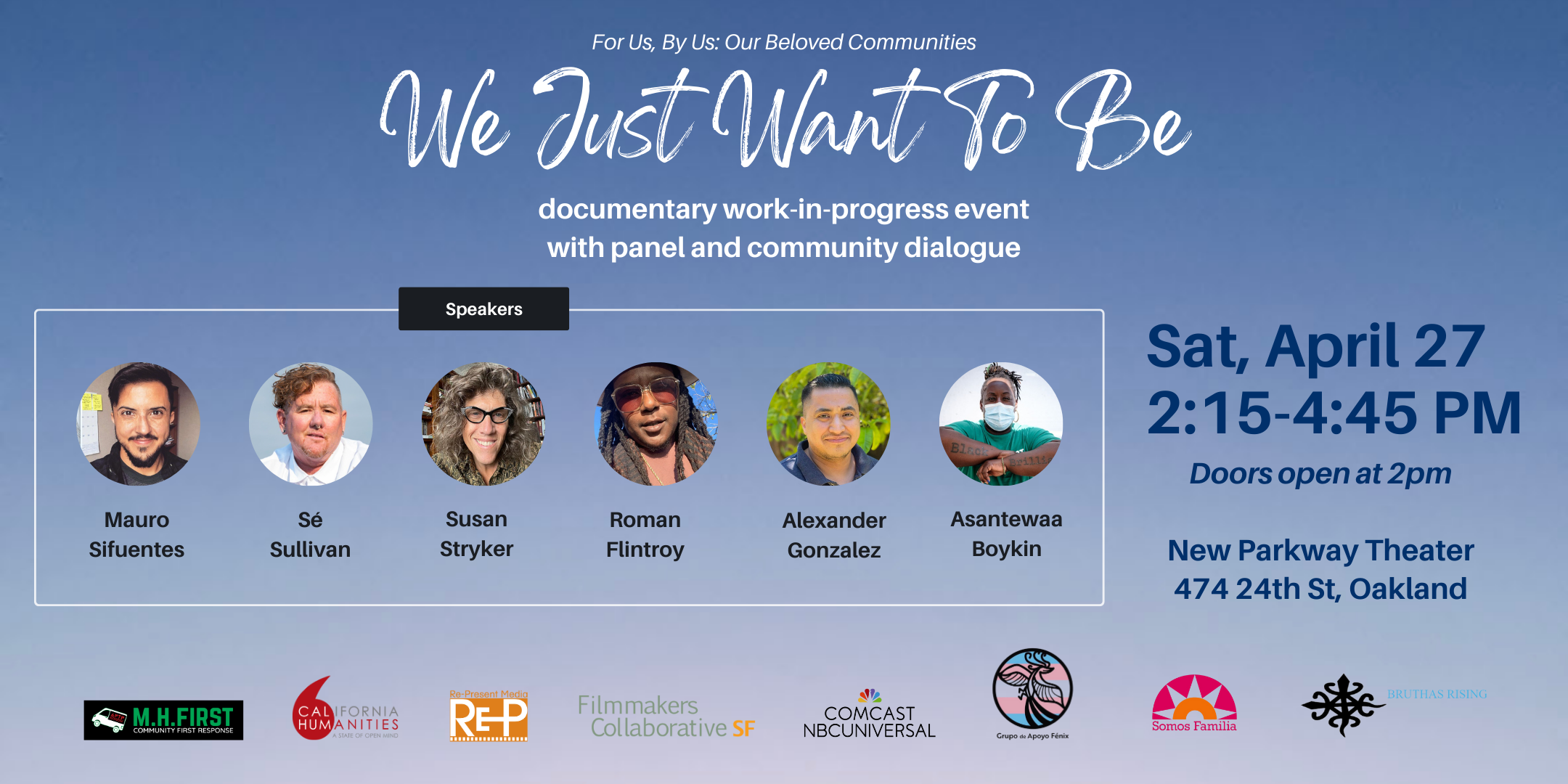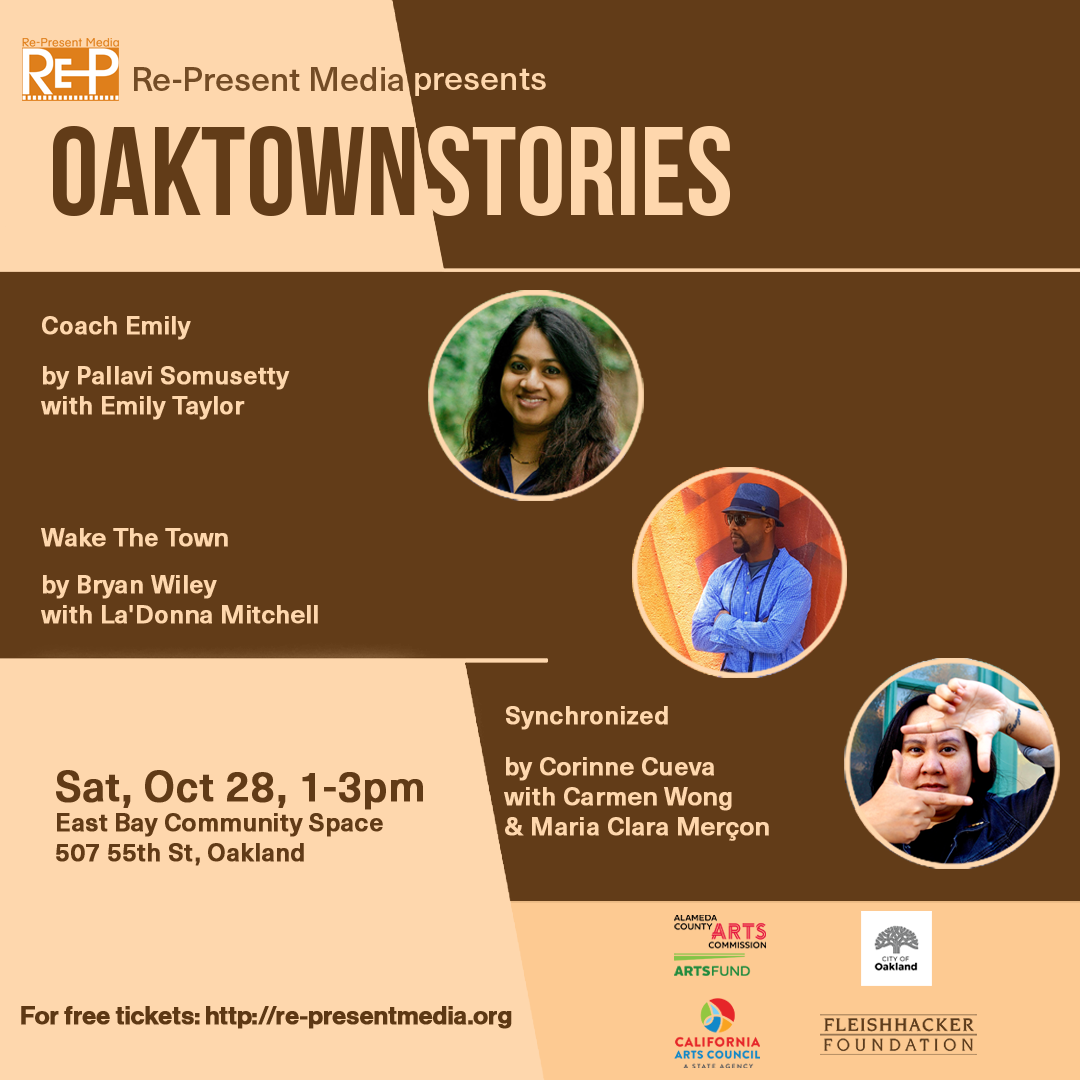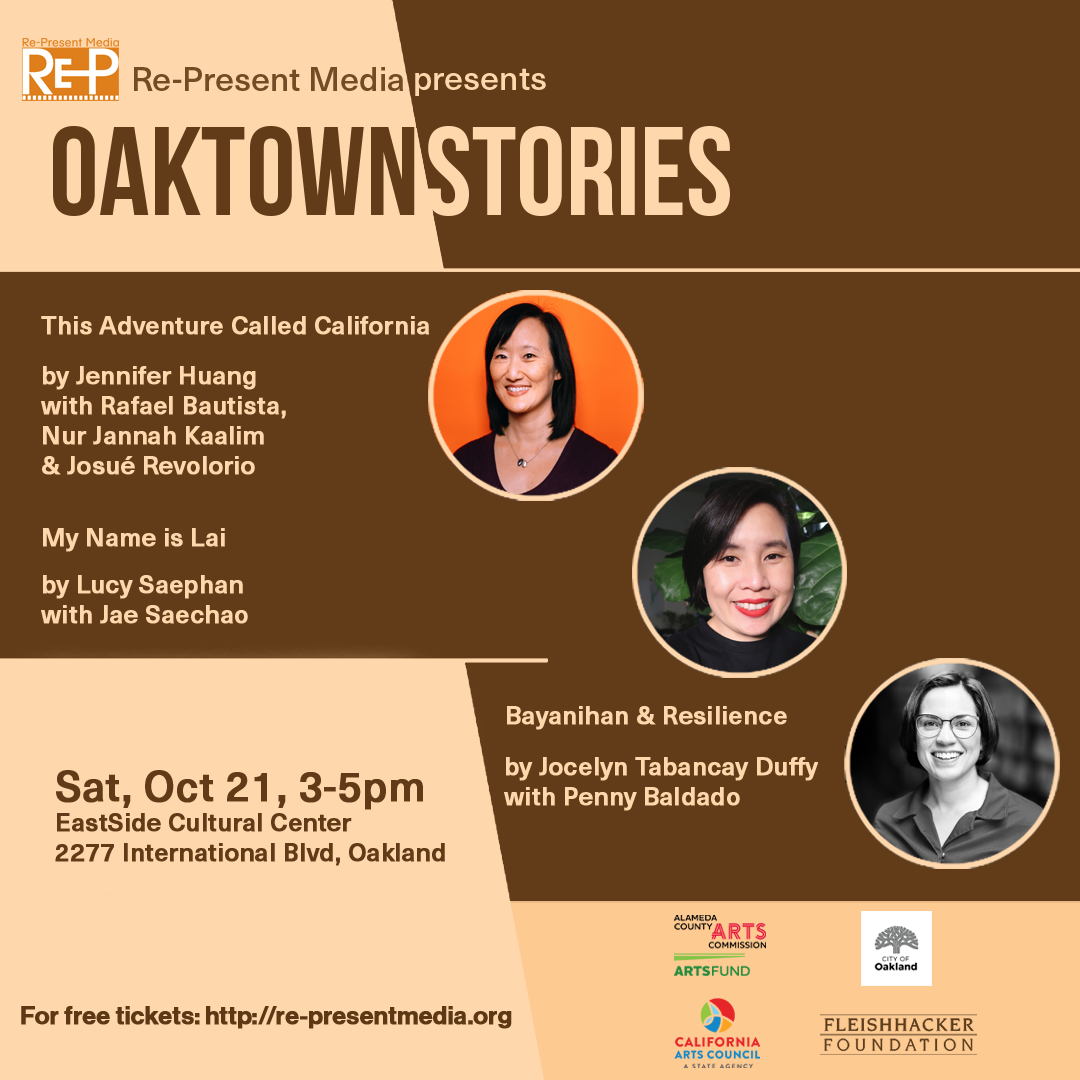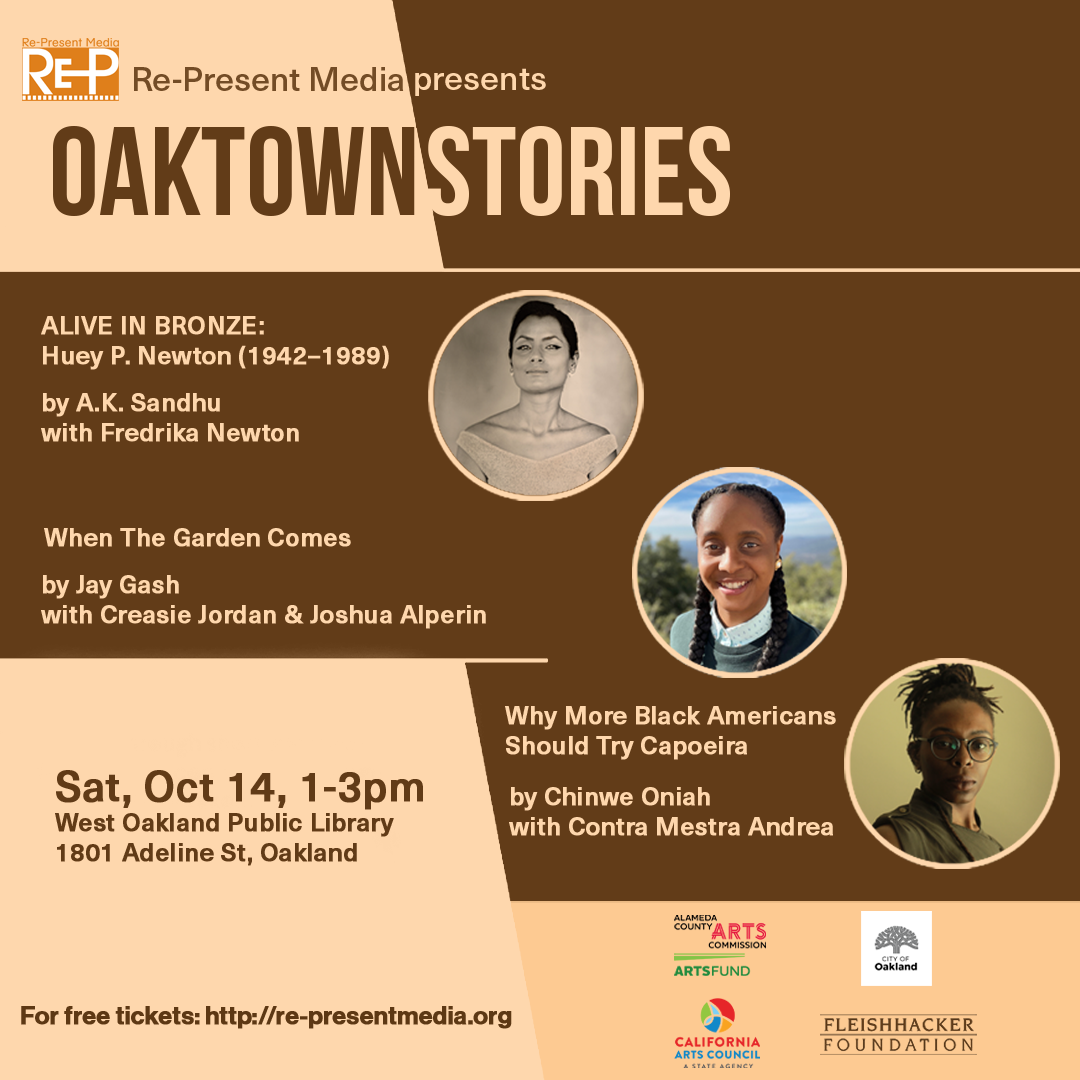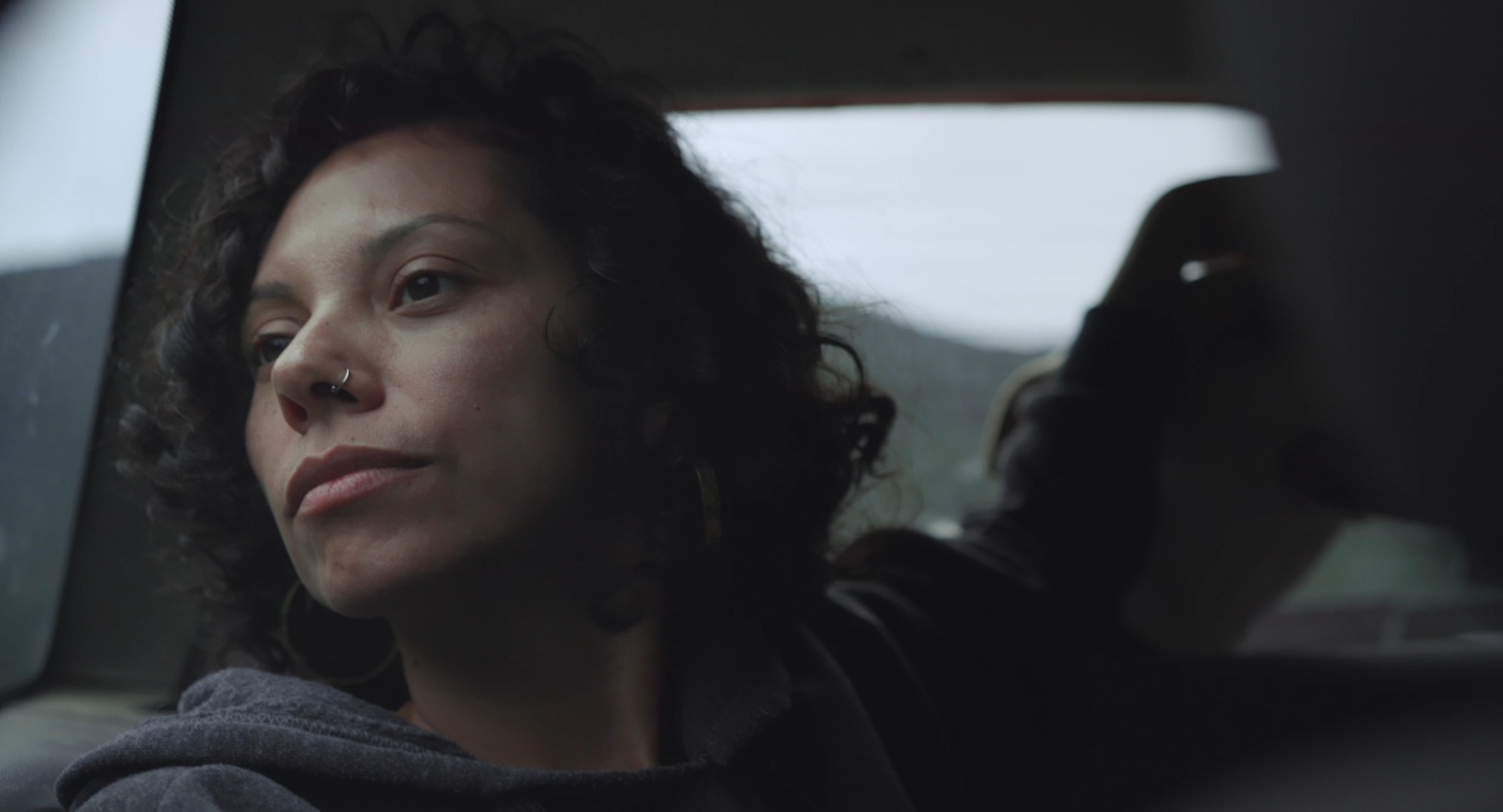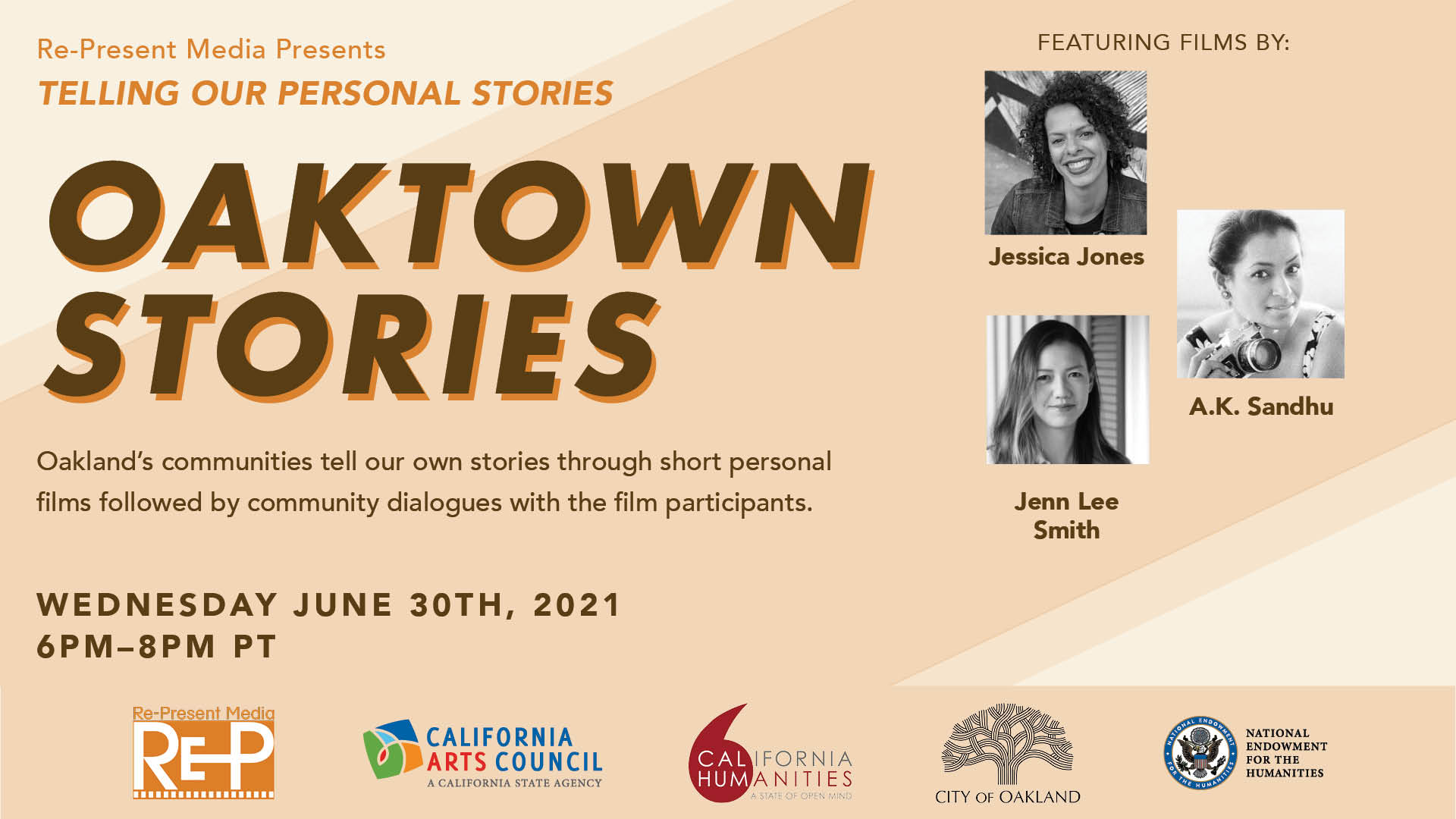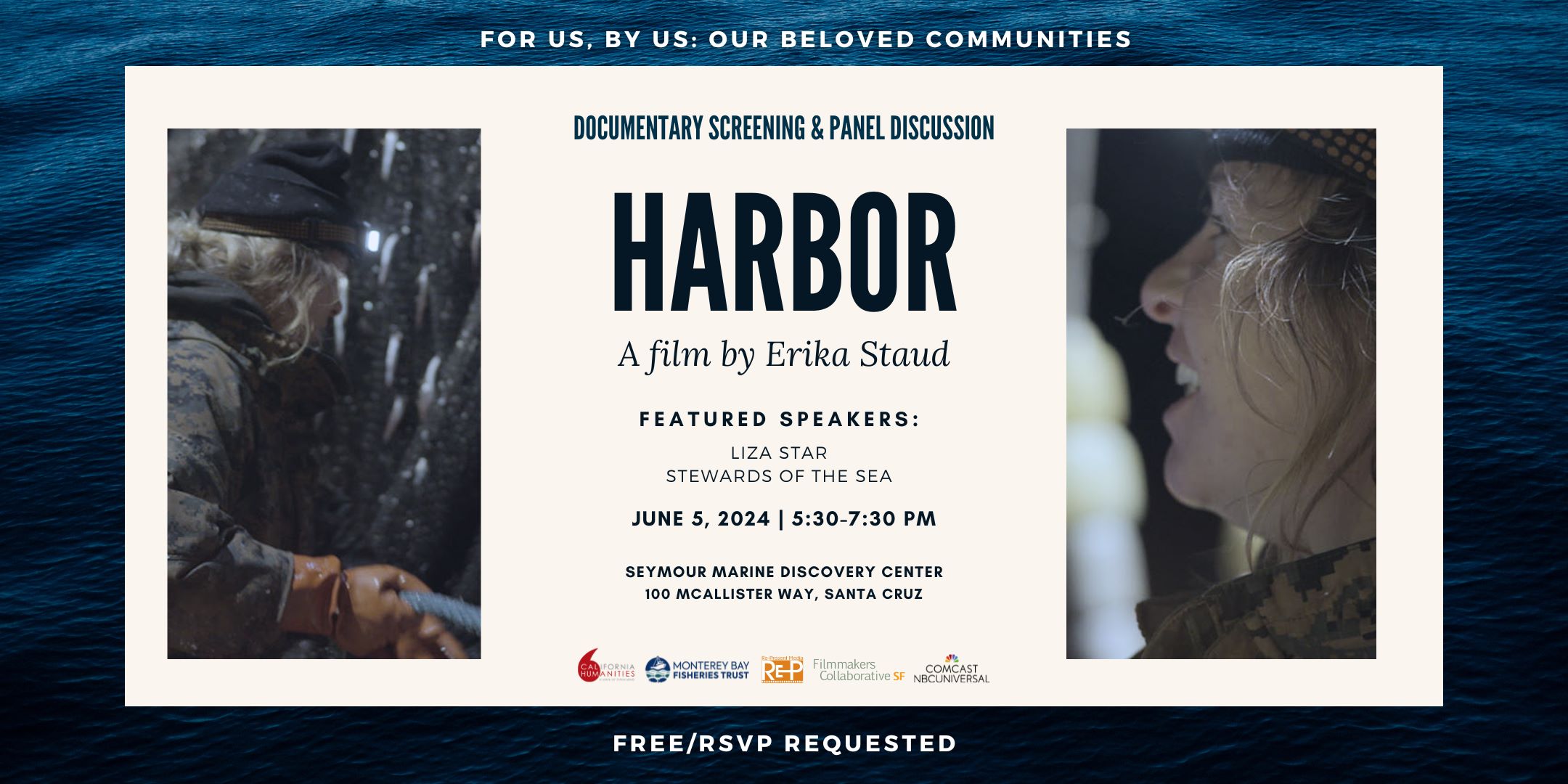
For Us, By Us: Our Beloved Communities is a multicultural film screening and discussion series highlighting documentary films made by a diverse group of local filmmakers who are telling personal stories of Bay Area community heroes.
Presented by Re-Present Media and Filmmakers Collaborative SF
For Us, By Us: Our Beloved Communities – Harbor
Wed, June 5, 2024, 5:30–7:30 PM
Seymour Marine Discovery Center, 100 McAllister Way, Santa Cruz, CA 95060
Join us for the film screening of Harbor, a film that follows the life of Liza Star, a local Monterey Bay fisherwoman. Get a chance to learn a bit of Liza’s daily life in the fishing and water-based industries in the Monterey Bay along with her journey to how she got here, starting from her childhood and upbringing in Rhode Island. Experience the film beside the ocean at the Seymour Discovery Center, and get a chance to eat locally caught Monterey Bay seafood with the appetizers served at the beginning of the event. There will also be a discussion panel of various Stewards of the Sea: people who are dedicated to the ocean through their jobs and lives.
Free – registration required via Eventbrite
This project is made possible with support from the Comcast NBCUniversal Foundation, Hobson Lucas Family Foundation, and California Humanities, a partner of the NEH. Visit www.calhum.org.
